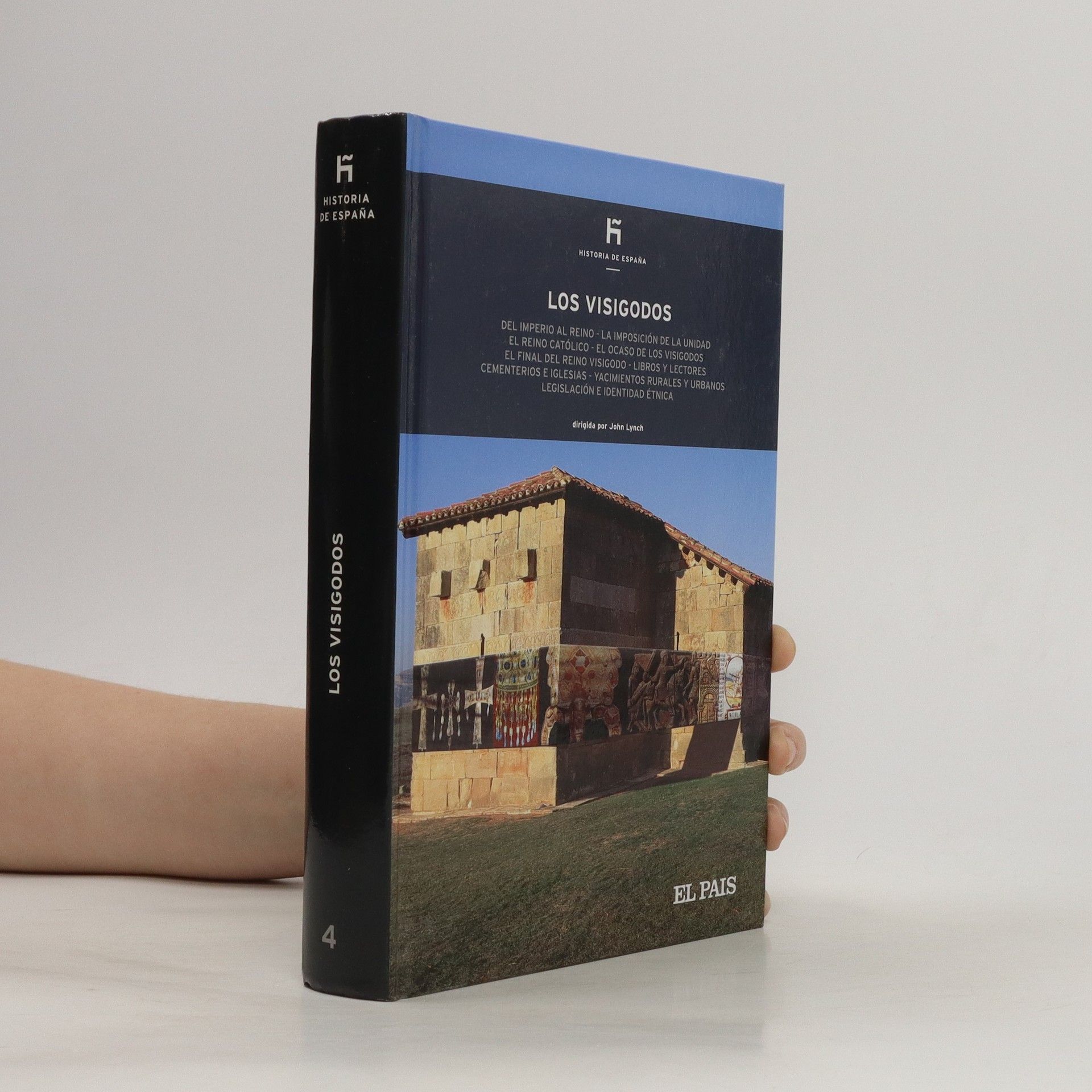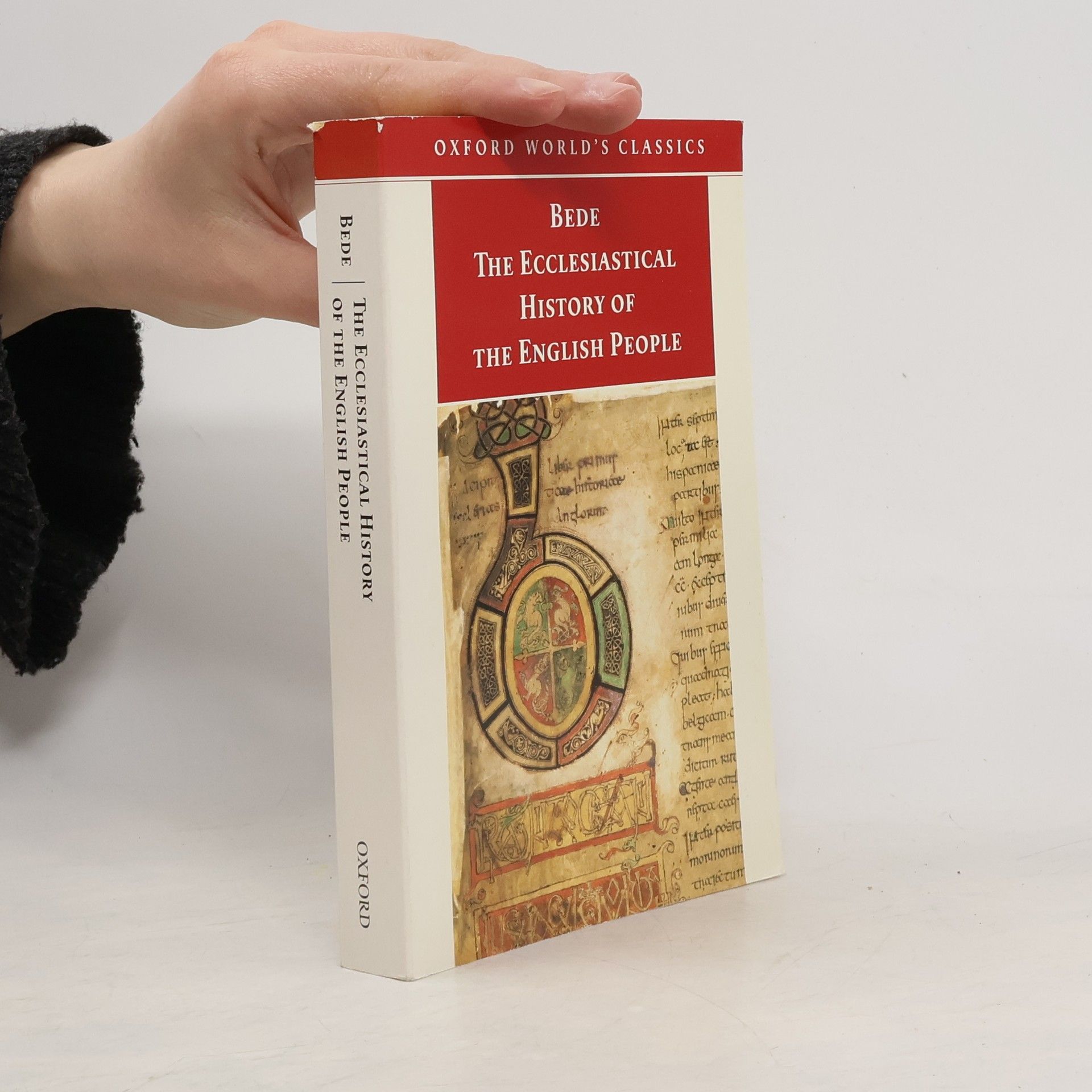Sleutelbewaarders
De geschiedenis van het pausdom, van Petrus tot Benedictus XVI
- 513 pages
- 18 hours of reading
A complete history of one of the most enduring and influential of all human institutions.
Roger J. H. Collins is an English medievalist whose work delves into the intricacies of the Middle Ages. His scholarship is characterized by profound insights into historical processes and meticulous analysis of medieval society. As an honorary fellow in history at the University of Edinburgh, he contributes to the ongoing exploration of this pivotal era in human history. His contributions illuminate the complexities and nuances of the medieval world for contemporary readers.






De geschiedenis van het pausdom, van Petrus tot Benedictus XVI
A complete history of one of the most enduring and influential of all human institutions.
The Ecclesiastical History of the English People (731 AD) is Bede's most famous work. A scholarly monk working in the north-east of England, Bede wrote the five books of the History in Latin. Starting with the invasion of Julius Caesar in the fifth century, he recorded the history of the English up to his own day. In particular, he described their conversion and the complex ways in which Christianity was spread among them. As well as providing the authoritative Colgrave translation of the Ecclesiastical History, this edition includes a new translation of the Greater Chronicle, in which Bede examines the Roman Empire and contemporary Europe. His Letter to Egbert gives his final reflections on the English Church just before his death, and all three texts here are further illuminated by a detailed introduction and explanatory notes.
Není překvapením, že raně středověká Evropa, tedy období pokrývající zhruba léta 300–1000, v posledních desetiletích přitahuje pozornost mnoha historiků. Práce R. Collinse, vědeckého pracovníka University v Edinburghu, seznamuje s tímto obdobím ve velké šíři a do pozoruhodných podrobností. Sedmisetleté období, které autor tak poutavě přibližuje, je životně důležité pro formování mnoha aspektů politického a intelektuálního dědictví, jež ovlivňuje historii národů až do dneška. Hlavní témata předkládaného období – pád Říše římské, posílení postavení křesťanství v Evropě na straně jedné, rozmach islámu na straně druhé, rozdělení na Východ a Západ, proměny křesťanství a vznik nových církví spolu s proměnami společnosti a novým dělením mocenských sil – jsou zpracována nejen do značné hloubky, ale zároveň čtivě a nápaditě.
Starting with the invasion of Julius Caesar in the fifth century, Bede recorded the history of the English up to his own day in 731 A.D. A scholarly monk working in the north-east of England, Bede wrote the five books of his history in Latin. The Ecclesiastical History is his most famouswork, and this edition provides the authoritative Colgrave translation, as well as a new translation of the Greater Chronicle, never before published in English. His Letter to Egbert gives his final reflections on the English Church just before his death. This is the only edition to include allthree texts, and they are illuminated further by a detailed introduction and explanatory notes.
In this text the author provides an account of the centuries during which Europe changed from being an abstract geographical expression into a new, culturally coherent, if politically divided, entity. It examines how the social, economic and cultural structures of Antiquity were replaced by their medieval equivalents and also seeks to define the European context, by looking at those external forces, such as the nomadic confederacies of Central Asia and the Islamic empire of the Arabs, which helped to shape it through conflict.
Roger Collins se ve své knize Baskové zabývá historií a původem Basků. Popisuje jejich předpokládaný původ, jazyk a historii spojenou s Římany, Germány, Franky až do vlády Anjouovců. Rozebírá i zánik fueros (vyzískaných autonomních práv), Basky v zámoří a dostane se i k současným problémům, které jsou spojené s organizací ETA.